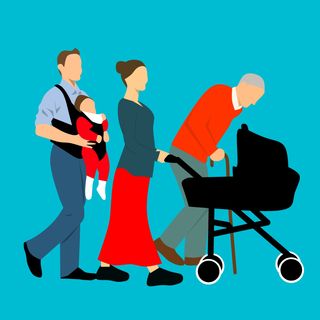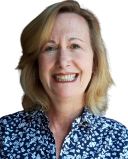Health
The Family Circle
Despite the desire to separate from our families, we need our kin!
Posted June 22, 2019

Many of us who raised our children in the 1980s-1990s had multiple copies of the sweet story "Love You Forever," which showcases a little boy, originally dependent on his mother, who eventually cares for her as she becomes frail. The tale is a tender story of the circle of life—as we are young, we need help from family members; as we age, we may need help from family members.
The human species has evolved in tribes, and many of our tribes include our extended families. Teens naturally rebel against their families, but upon entering adulthood, they often realize that their parents have more in common with them than they thought and that families can help them negotiate new challenges.
As a culture, the Japanese are particularly good at supporting their families. But how do we do in the United States? Should we think of families at a main source of support, or are our family relationships too complex for that?
Clinical medicine initiatives—medications that lower cholesterol, insulin for diabetes, robotic surgeries—skyrocketed over the last century. But at the same time, despite evidence of many clinical medicine successes, there has also been recent attention in medical circles to the social determinants of health. Yes, clinical medicine is important, but social influences on health can often bolster health outcomes.
Social support is one such social determinant of health. Researchers have found that accounting for family social support helps communities. For instance, the Robert Wood Johnson Foundation assesses family social support when looking at county health rankings. AARP provides a long-term care report card, ranking states that give support to family caregivers as well as reviewing other performance measures. The states of Washington, Minnesota, and Vermont rank the highest, all providing high-level support for family caregivers.
Health-oriented non-profits, such as the Institute for Healthcare Improvement (IHI) and Commonwealth Fund, promote initiatives that help family caregivers care for elders or for children. For instance, IHI reports on community programs that assess high-risk seniors, including the MedStar Medical House Call Program. In addition to sending clinicians to the home for geriatric assessment, the Medstar program helps support and educate family caregivers. Medstar acknowledges that helping families improves outcomes.
The Affordable Care Act (ACA), passed in 2010, called for numerous actions by the federal government with the goal of improving the health outcomes of those living in the U.S. One component imposed financial penalties for those institutions that had frequent re-admissions. In other words, hospitals were penalized when patients who were discharged returned to the hospital, unstable.
Since most persons prefer to be cared for at home rather than in the hospital, it is important for communities to strengthen families so that they can have the tools to care for their sick/disabled/injured family members at home when at all possible. A study done at a teaching hospital in Iran showed that mothers who had extensive coaching on how to take care of their premature babies—maternal “empowerment”—did very well in caring for their sick children once home.
Family caregivers help save the health care industry money by performing tasks once relegated to hospitals. We are challenged to support such family caregivers by: 1) coaching them on post-hospital care, 2) helping them to access home-care services, and 3) providing respite services when they burn out. This will enable us to bring the story of "Love You Forever" to life, with family members providing each other with support and care, cradle to grave.
(This blog post is dedicated to Dr. Mona Pollack who taught me much about how family caregivers can make a difference. Mona died of breast cancer, more than a decade ago—much too young.)


